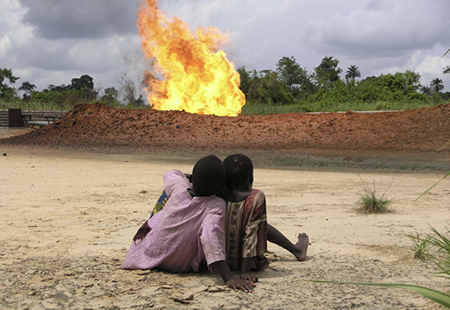There are no products in your shopping cart.
| 0 Items | £0.00 |


NIGERIA has lost a staggering sum of $16bn to gas flaring over the last 10 years as natural gas which should have been piped to buyers generating revenue for the government was being wastefully pumped into the environment according to a new report.
Statistics contained in the Energy Institute’s 72nd edition of the Statistical Review of World Energy 2023, said the amount was lost between 2012 and 2022. A breakdown of the statistics showed that upstream and downstream oil and gas firms operating in the country flared the highest amount of gas in 2012, estimated at 12.9bn cubic metres of natural gas, 9.2bn in 2013, 8.3bn in 2014, and 7.5bn in 2015.
Flaring then fell with 7.2bn cubic metres released in 2016 but then rose again, rose to 7.5bn cubic metres in 2017, before dropping slightly to 7.3bn cubic metres in 2018 and then rising to 7.8bn cubic metres in 2019. Volumes dropped significantly to 7bn cubic metres in 2020 and again further to 6.5bn cubic metres in 2021, before resting at 5.3bn cubic metres in 2022.
Basically, the volume of gas flared by Nigeria during the 10 years under review comes to an estimated 86.5bn cubic metres. According to the Hebrew Energy, the value of each 1bn cubic metres of natural gas is worth about $183m, thus providing an estimated $16tn lost to the menace within the period under review.
In 2020, former President Muhammadu Buhari pledged support for the United Nations 2050 zero gas emission agenda and pledged that Nigeria would put a final stop to gas emissions at the latest by 2060. In line with the drive to end these gas emissions, the Nigerian Upstream Petroleum Regulatory Commission, said the government had granted 42 firms gas flaring licenses in the 2022 Nigerian Gas Flare Commercialisation Programme auction process.
According to the commission, 38 of the companies have been awarded 40 flare sites for standalone single flare site development, while four are awarded nine sites to be developed as clusters. As a form of penalty for gas flaring, oil companies were liable to fines totalling $25.3m in July.
Gbenga Komolafe, the chief executive of the Nigerian Upstream Regulatory Petroleum Commission: “The wasteful disposal of natural gas is not only fraught with deleterious health/ environmental consequences but also a major source of resource waste and value erosion to the country.”
He added that the Nigerian Gas Flare Commercialisation Programme will attract investment and develop a transparent market mechanism through a competitive procurement process for allocating gas flares. This he said would be done under clear and transparent criteria to competent third-party investors using proven technologies in commercial applications globally.